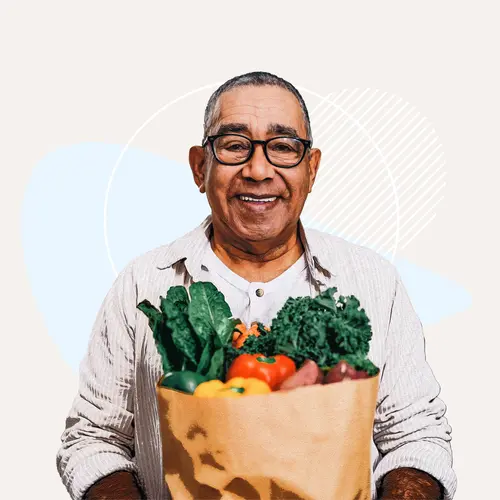Heart disease has haunted generations of Robin Drummond's family. "I have afamily history of heart disease on both sides," says the 55-year-old African-American andresident of Hammond, La. "I've had uncles, aunts, and grandparents who've diedfrom heart attacks and heart disease, and two of my mother's brothers died fourmonths apart. One had a heart attack in church, and four months later, one hada heart attack in the post office."
When Drummond's father succumbed to heart disease at age 50,she was shaken. "Particularly when my dad died, I wanted to make sure that Iwas OK," she says. In 2002, she went to her doctor for testing and learned thather heart was mildly enlarged, placing her at risk for heart failure. Drummond, a registered dietitian, took strenuous measures toward off trouble. But not all African-Americans are aware of the danger.
African-Americans and Heart Failure
In a startling 2009 study published in the New EnglandJournal of Medicine, researchers found that African-Americans have a muchhigher incidence of heart failure than other races, and it develops at youngerages. Heart failure means that the heart isn't able to pump blood as well as itshould.
Before age 50, African-Americans' heart failure rate is 20times higher than that of whites, according to the study. Four risk factors arethe strongest predictors of heart failure: high blood pressure (also called hypertension), chronic kidney disease, being overweight, and having low levels of HDL, the "good" cholesterol. Three-fourths of African-Americans who develop heart failurehave high blood pressure by age 40.
African-Americans and Health Care
To prevent heart failure and other heart disease, it's crucialto treat risk factors successfully, says Anne L. Taylor, MD, a professor ofmedicine at New York Presbyterian Hospital and vice dean of academic affairs atColumbia University's College of Physicians and Surgeons. But, compared withtheir white peers, African-Americans often have less access to health care, shesays. Not only are they less likely to visit a doctor and get routinescreenings, but they're less likely to be referred to specialists.
"African-Americans with heart failure are more likely to betaken care of in a primary care practice," Taylor says, "even though the datawould suggest that the best care -- the care that decreases hospitalizationsand improves mortality rates -- happens in cardiologists' offices."
Further, some African-Americans "tend to see illness and disease as the mainreason for health care, so you don't go to the physician for preventivemedicine -- you go when you're sick," says Keith C. Ferdinand, MD, FACC, FAHA.Ferdinand is a clinical professor in the cardiology division at EmoryUniversity and chief science officer of the Association of Black Cardiologists."When are you sick? When you have symptoms: chest pain, shortness of breath, swelling, dizziness. By the time people manifest the signs and symptoms ofcardiovascular disease, they have already had that disease present for one,two, or even three decades."
Treating Heart Disease Risk Factors
Drummond's father, who had health insurance but not a physicianhe would go to on a regular basis, provides a cautionary tale about whyAfrican-Americans must maintain a consistent relationship with a good doctorwho knows their medical history and provides preventive care, screenings, andreferrals to specialists.
"He had a leaking valve, and it didn't get replaced as soon asit should have," Drummond says. "The doctor told us it should have beenreplaced six or seven years earlier. When he started having swelling in hislegs and shortness of breath, that's when he went to the hospital." Doctorsdiagnosed the leaking valve and performed surgery, but "it was too late forhim," Drummond says. He died a few weeks after his surgery.
Besides a strong family history, Drummond has other riskfactors for heart disease. She was diagnosed with high blood pressure at age 28and with type 2 diabetes about five years ago. After years of unsuccessfully tryingto control her blood pressure with diet and exercise, she now takes medications.
She's under a doctor's regular care, and she stays fit and eatshealthy foods. "I work hard. I go to the gym to help control my hypertensionand diabetes. I take the meds, I watch my sodium intake, and I work at keepingmy weight within normal range." So far, she says, she's avoided heartfailure.
What to Ask Your Doctor About Heart Disease
High blood pressure is a major risk factor for heart failure.Work with your doctor to keep it in check by asking the followingquestions:
- What is my risk for developing high blood pressure?
- How can I limit my risk and help prevent it?
- What are the symptoms?
- What does my blood pressure reading actually mean?
- Am I taking any medicines that make me more susceptible?
- What medications are available if I have high blood pressure?
- What are the benefits and side effects?

